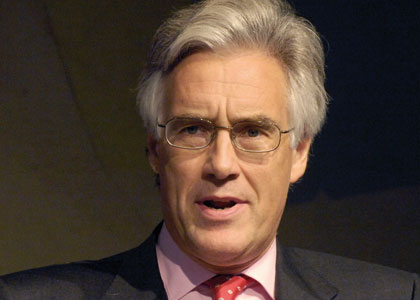Do Not Obsess About Debt, Obsess About the Vitals

By Darren Quinn
Professors Edmond, Holden, and Preston are mistaken in that Modern Monetary Theory (MMT) says we should not worry about budget deficits. The effects of budget deficits are significant. As Stephanie Kelton, the most well-known MMT economist in the world, says, we should focus on the deficits that matter. The jobs deficit, the environmental deficit, the deficit of affordable housing for homelessness, and many more. The financial deficit from the budget is the private sector surplus, the money in your pocket and mine.
Keynes used financial praxis to argue for fiscal stimulus in severe recessions, and since financial praxis is always and everywhere an MMT phenomenon, Keynes used MMT.
The professors are also mistaken to say that it is a well-accepted idea that the spending comes first. Many politicians and commentators who talk as if the government spending is like a household budget are economists or have worked in the central bank and Treasury, among other public service jobs. So the television talking heads like financial commentators and public-facing economists such as Stephen Koukoulas and Saul Eslake are not saying these things.
The professors have not been paying attention if they think MMT proponents and economists do not explain when the inflation constraint binds. Every time MMT talks about real resources and their availability, MMT proponents are talking about inflation constraints. The real resource constraint is the inflation constraint.
It is a truth universally acknowledged that central banks do not have a working theory of inflation. Therefore, they must be in want of an excellent post-Keynesian economist like Joan Robinson or an MMT economist like Australia’s Bill Mitchell. After all, those economists have a working theory of inflation that matches reality.
The professors claim that conventional economics has a comprehensive analysis of what causes inflation; however, they would have to elaborate on this to prove that claim. Perhaps the professors are just thinking of the debunked monetary and neoclassical theories of inflation. Daniel Tarullo, a former Federal Reserve Bank board member in the United States, explains [The Financial Times, paywalled] that central banks do not have a working theory of inflation.
MMT has always acknowledged that inflation can occur below full employment, as currently demonstrated through the coronavirus pandemic and the Russia-Ukraine conflict, with Australian unemployment at 3.5% and still 1.3 million people looking for work. As the professors should know, bottlenecks can occur in various sectors from spending before full employment is reached. This congestion can occur in the form of a resource shortage in a greater supply chain of production. It is currently being demonstrated by the lack of oil and natural gas supply in the Australian production chain.
If the Ukraine conflict had not affected oil supplies, then automotive fuel would not have been ever-increasing in price. The price increase was alleviated by the temporary excise cut in fuel. Who would have thought that reducing prices reduces inflation? Inflation is a measure of prices, so of course, lowering prices reduces inflation.
What about price rises for natural gas? These rises have occurred because we have sold our industries off to foreign owners who demand world prices for our gas instead of us owning our energy industry and setting our own prices. Putting aside environmental concerns with these fossil fuels, we are not in control of our energy resources. What we need is an Australian strategic reserve of our energy, owned by Australians and priced in Australian dollars. We briefly saw this achieved when the government activated the Gas Supply Guarantee Mechanism.
As stated earlier, we should focus on the deficits that matter, so yes, if you want to implement policies from the Green New Deal or a larger social safety net with increased social security payments, they should be argued for on their own terms. This conflicts with the professors agreeing that spending comes first (meaning that there is no purely financial constraint) but then saying that implementing any given progressive policy may cause politically unacceptable inflation. MMT explains that keeping an eye on resources and/or expanding capacity in domestic production can minimise inflation risk.
It is worth noting that neither Treasurer Chalmers nor Finance Minister Gallagher has formal training in economics or finance, but they have public service experience in these fields. These Labor ministers have concerns about increased expenditure on Health, NDIS, Aged Care, and Defence. It is an exaggeration to say these are a political concern. As the professors have previously explained, they are reasonable goals that the public can argue for on their own terms.
The professors have not disputed nor disproved Modern Monetary Theory but, in effect, agreed with it. It is clear that Modern Monetary Theory’s time is now. The time to flick the switch is now!
 Darren is a leader in educating people in modern macroeconomics. He played a founding role in educating Australians via social media channels and has engaged some prominent Australians on commentary about Modern Monetary Theory. Darren is a member of Modern Money Australia, Australian Real Progressives and has been involved with the Modern Money Network. You can see more of his work at https://www.darren-quinn.net and https://www.realausprogressives.com
Darren is a leader in educating people in modern macroeconomics. He played a founding role in educating Australians via social media channels and has engaged some prominent Australians on commentary about Modern Monetary Theory. Darren is a member of Modern Money Australia, Australian Real Progressives and has been involved with the Modern Money Network. You can see more of his work at https://www.darren-quinn.net and https://www.realausprogressives.com
You can find him on Twitter @AusMMT @dquinn03
Like what we do at The AIMN?
You’ll like it even more knowing that your donation will help us to keep up the good fight.
Chuck in a few bucks and see just how far it goes!
Your contribution to help with the running costs of this site will be gratefully accepted.
You can donate through PayPal or credit card via the button below, or donate via bank transfer: BSB: 062500; A/c no: 10495969










